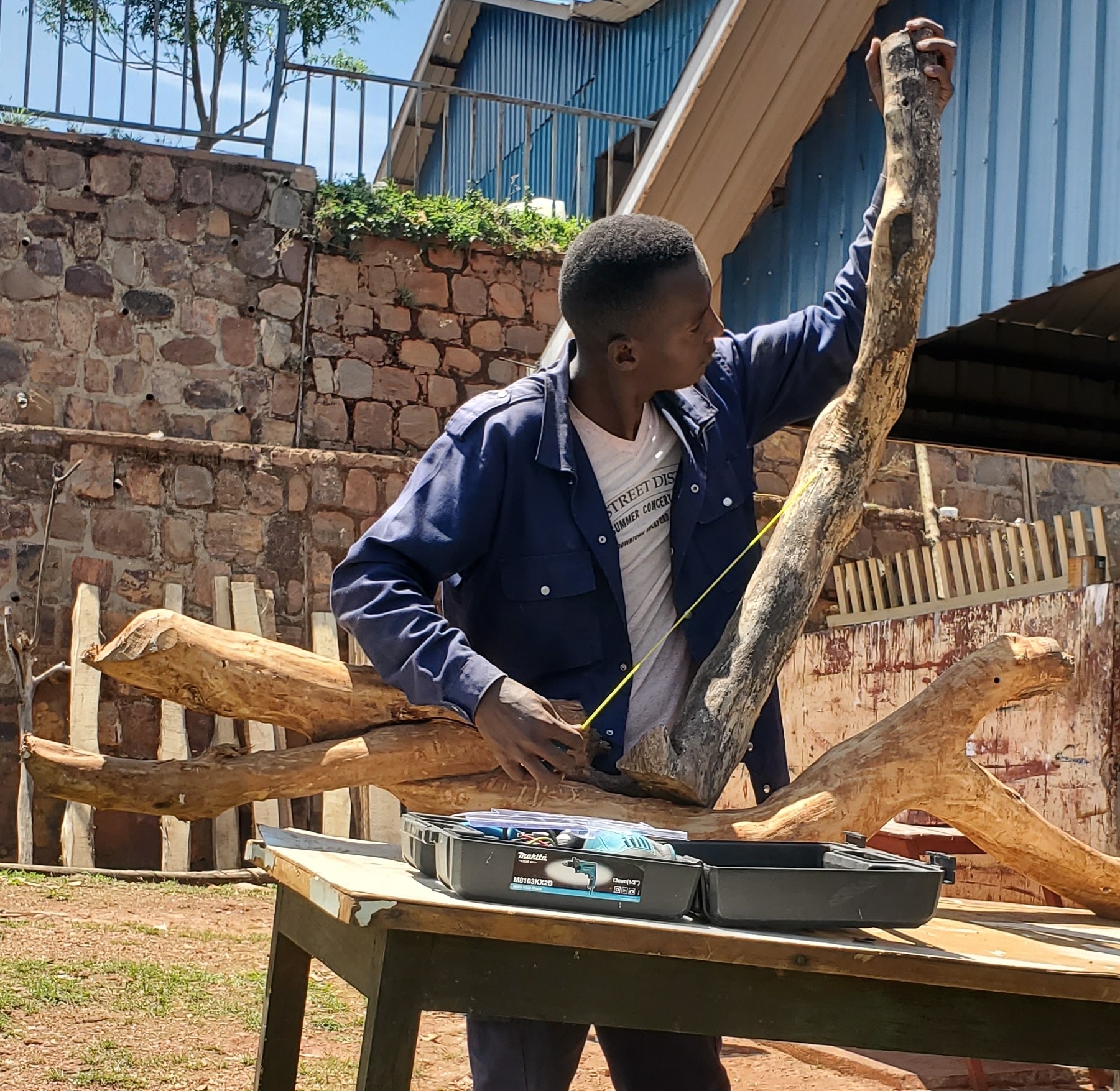In Rwanda, stepping away from gospel music to pursue secular music is often met with resistance. Some see it as abandoning faith, others label it as sinful, and yet, some argue that music—no matter the genre—speaks to the soul in different ways.
For Chris Hat, a rising Rwandan artist, this journey was not just about music—it was about self-discovery, breaking barriers, and chasing dreams against the odds.
Born in Nyamirambo, a vibrant neighborhood in Kigali, Chris Hat grew up in a deeply religious family. His days revolved around church, prayer, and singing in children’s choirs. But his real dream? To become a football star.
Music was always there, but he never saw it as his calling—until one day, everything changed.
During his first year of high school, while casually singing with his friends, a girl suddenly stopped him in awe. “Was that really you? Sing it again, please!” she asked, eyes wide with excitement.
That moment became the spark. News spread like wildfire across the school—Chris Hat had an extraordinary voice. His classmates begged him to sing at every chance they got. But to him, it still felt like a game. Football was his focus, and music? Just a fun side hobby.
By 2020, something shifted. The music inside him was too strong to ignore. He decided to pursue it professionally.
Under the guidance of renowned music manager Muyoboke Alexis, Chris Hat stepped into the industry. With guidance, exposure, and the right opportunities, he quickly became known in Rwanda’s music scene.
But as success loomed on the horizon, an unexpected twist came—he parted ways with his manager.
Suddenly, Chris was alone, with no financial backing, no industry connections, and no clear path forward.
It was a defining moment. He could have quit. Instead, he pushed forward, navigating the competitive music world by himself.
As he shifted from gospel to mainstream music, Chris Hat faced resistance—not just from the industry but from his own family. His mother, who had always seen him as the choirboy, was especially shocked.
The day she saw him with dreadlocks, her heart sank. “What have you done to your hair?” she asked, disappointment clear in her voice.
“I want to look like an artist,” he responded.
For his mother, it was difficult to accept. The boy who once sang hymns in church had transformed overnight. But over time, she saw his passion and, though hesitant, chose to support his dream.
Breaking into the music industry wasn’t just about talent—it came with its share of challenges. Many artists in Rwanda have spoken out about exploitation, particularly sexual favors being demanded in exchange for success.
Chris Hat addressed this harsh reality, stating, “If so many people speak about it, then it’s happening. And that’s unacceptable. No one should have to give up their dignity to succeed in music.”
Despite the struggles, Chris Hat remains determined to carve out his place in the music industry. But beyond his own journey, he has a message for young people:
“Create your own opportunities. If you work for someone else, you follow their rules. But if you work for yourself, you control your own destiny.”
He urges the youth to use their talents wisely instead of wasting time on social media. “We live in a country full of opportunities. Instead of watching meaningless content online, invest in yourself. Develop your skills. Build something meaningful.”
Chris Hat has faced criticism, doubt, and setbacks, but he refuses to back down. He knows that music—when done with passion and purpose—has the power to inspire, heal, and change lives.
As he continues to rise in Rwanda’s music scene, one thing is clear: his story is only just beginning.












































